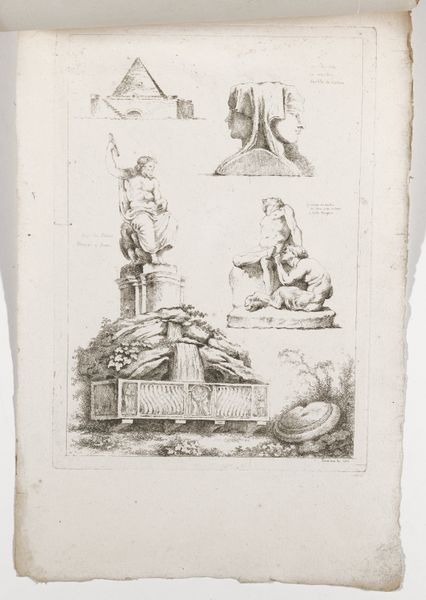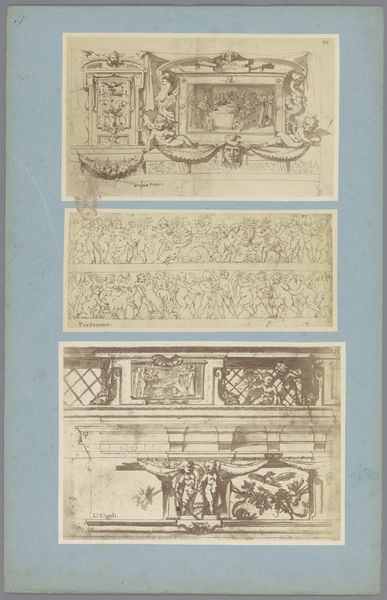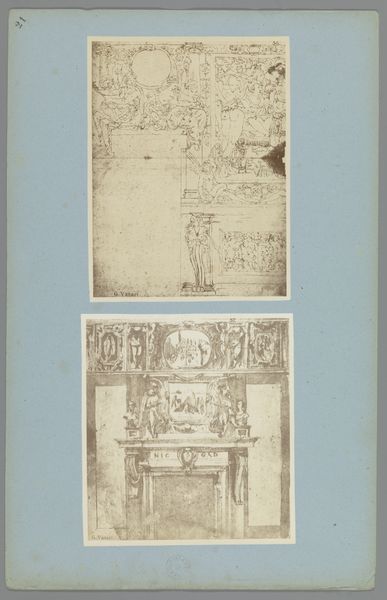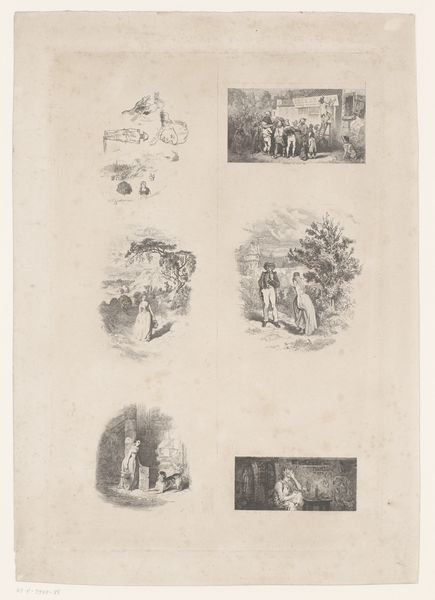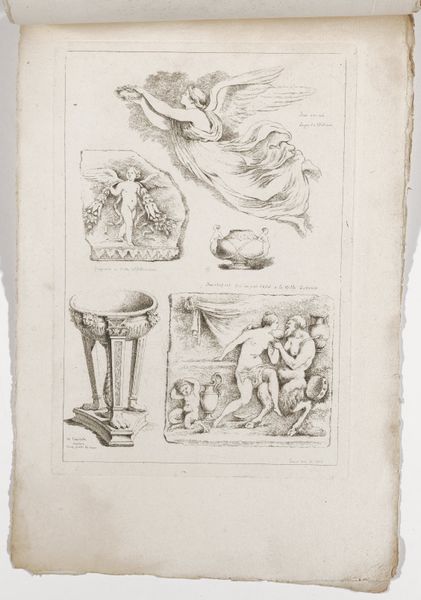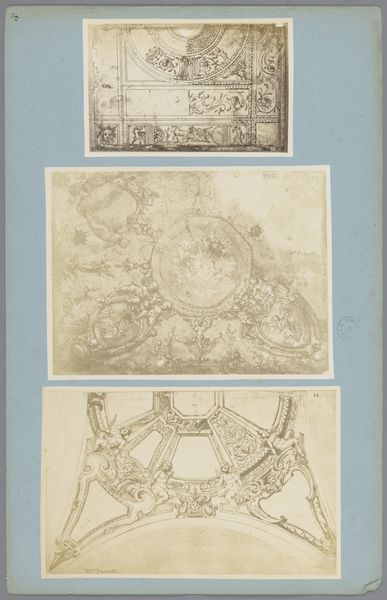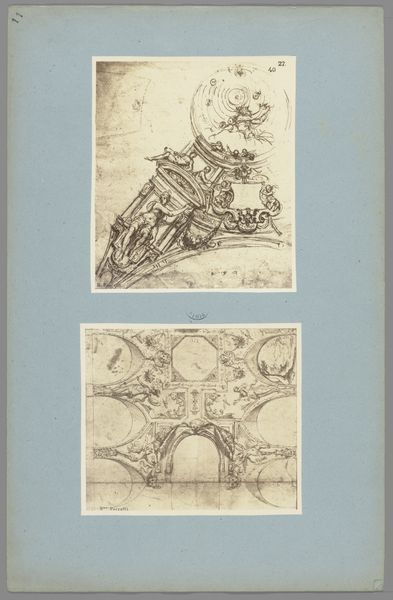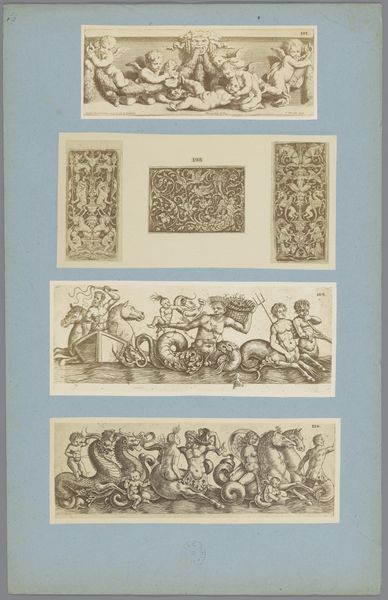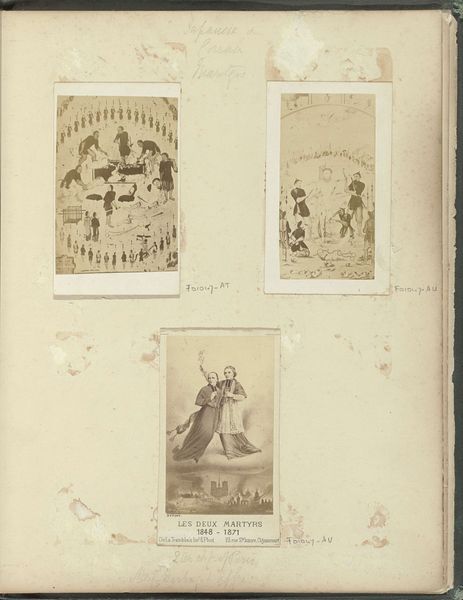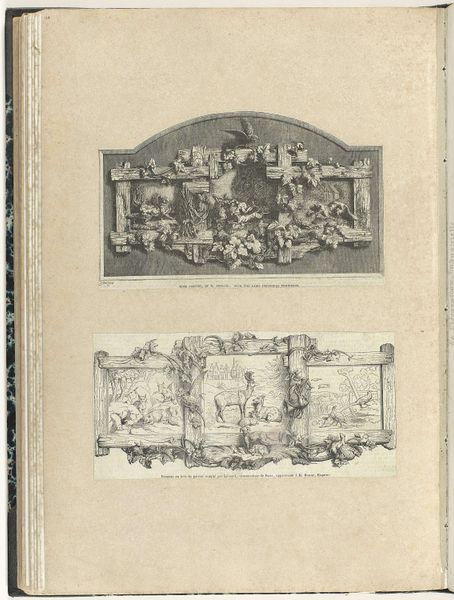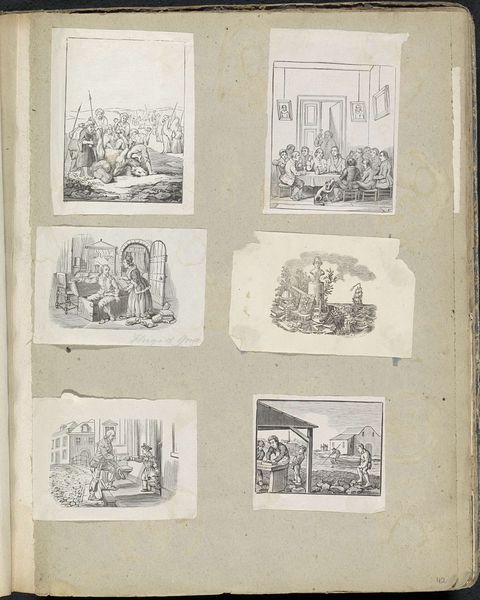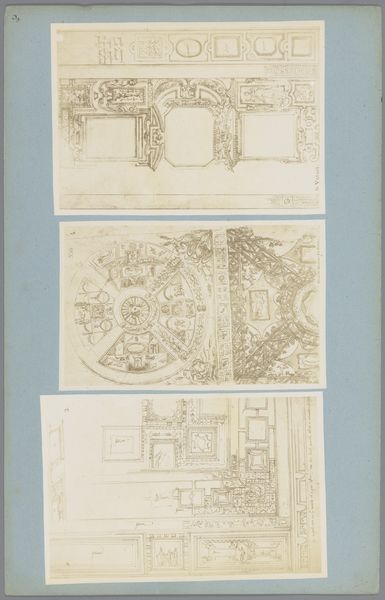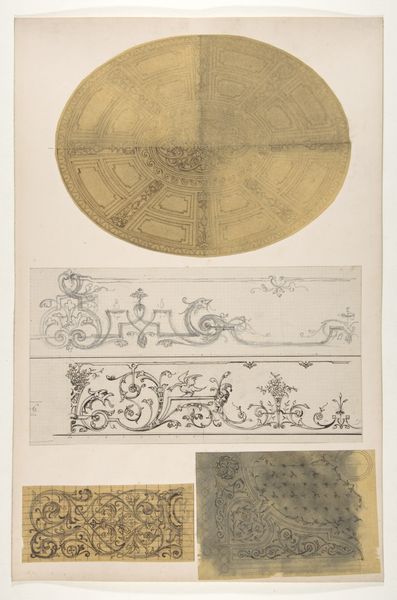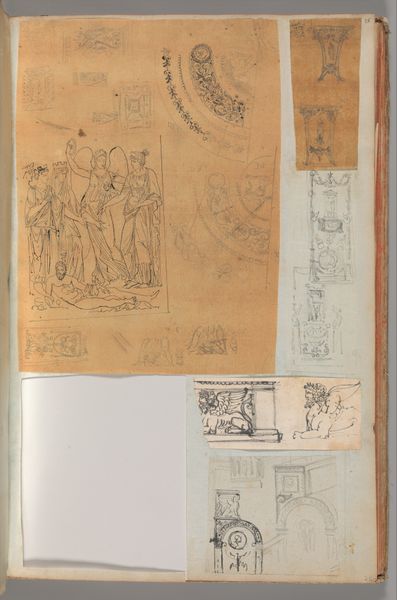
Seven drawings,including four decorative motifs and two scenes of interiors 1830 - 1897
0:00
0:00
drawing, coloured-pencil, print, paper, watercolor, pen
#
drawing
#
coloured-pencil
# print
#
paper
#
watercolor
#
coloured pencil
#
pen
#
watercolour illustration
#
history-painting
#
academic-art
Dimensions: Overall: 14 1/16 x 6 5/8 in. (35.7 x 16.9 cm)
Copyright: Public Domain
These seven drawings by Jules-Edmond-Charles Lachaise include decorative motifs and scenes of interiors rendered with pencil. Notice the motif of the cornucopia, or horn of plenty, a classical symbol of abundance, overflowing with fruits and flowers. It appears both in the still life and in the decorative frieze at the bottom. This ancient symbol, linked to deities like Fortuna and Ceres, has roots stretching back to classical antiquity, recurring in Roman art and Renaissance paintings. Across time, the cornucopia retains its core meaning yet adapts to reflect the values of different epochs. In an earlier era, a cornucopia might symbolize agricultural prosperity and divine favor. In later times, this shifts to embody colonial wealth or bourgeois affluence. The image invites us to consider how cultural memory is shaped by recurring symbols, their meanings evolving through diverse historical and cultural contexts, connecting subconscious desires and collective memories in a never-ending cycle.
Comments
No comments
Be the first to comment and join the conversation on the ultimate creative platform.
